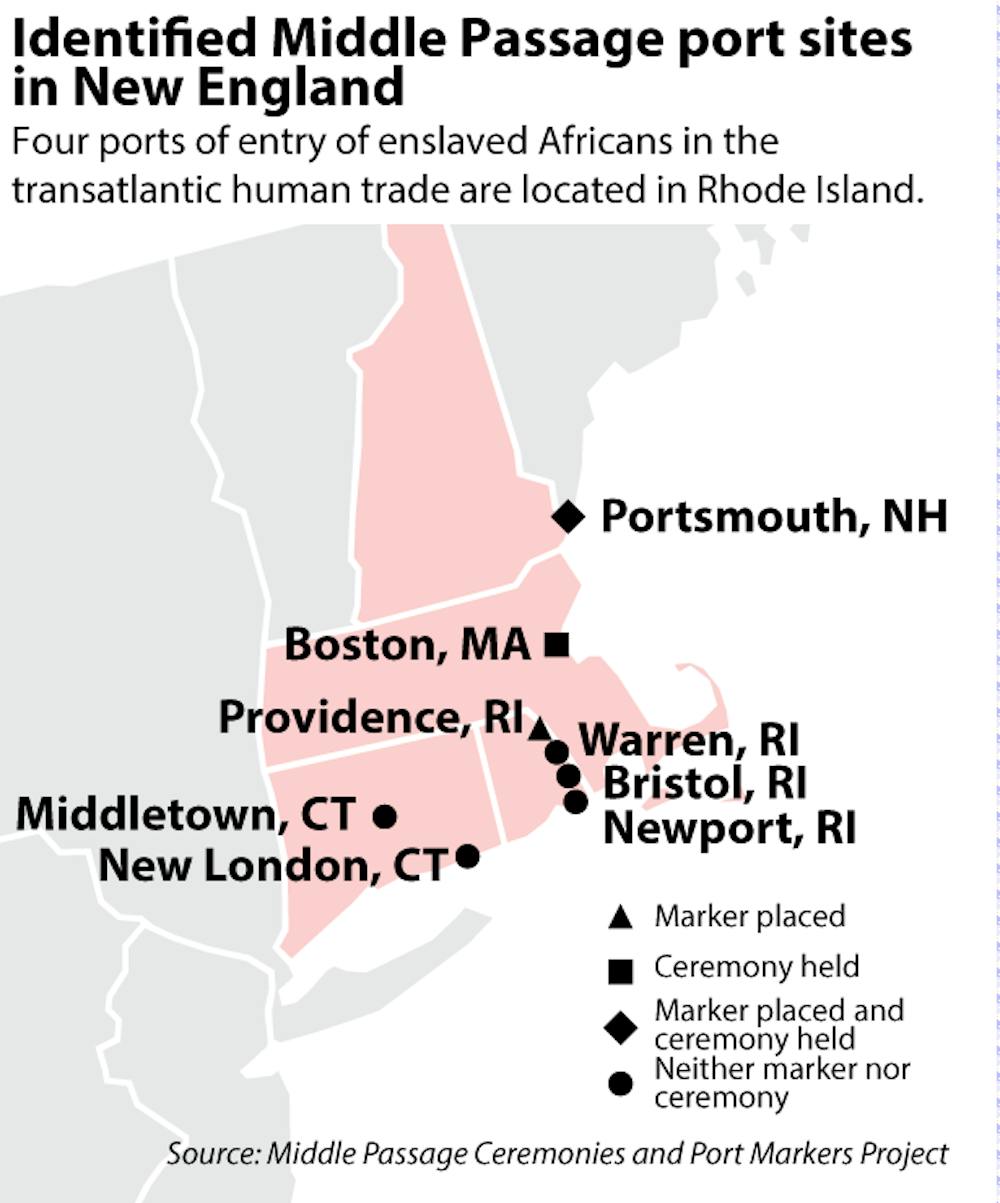Visitors to the Rhode Island School of Design Museum’s ongoing exhibition, “The Art of Race,” might notice that the series of lectures and decorative art installations credits the work of the Center for Reconciliation, a local faith-based nonprofit. Founded by the Episcopal Diocese of Rhode Island in 2014, CFR is an expression of the Episcopal Church of Rhode Island’s commitment to racial reconciliation, according to the center’s website. “It is a response by the Diocese of Rhode Island to our historic participation in the slave industry and the way we have profited from that trade,” said Bishop Nicholas Knisely, the chair and president of CFR’s board of directors.
CFR took its cue from the University’s Center for Slavery and Justice, which aims to examine the University’s role in the Rhode Island slave trade.“Without Brown University’s first steps to deal with its own history, the diocese would not have been inspired as much or at all to deal with its version of its history,” Knisely said.
Professor Anthony Bogues, director of the Center for the Study of Slavery and Justice and professor of humanities and political theory, played a role in the formation of CFR and now serves on its board of directors. Bogues said that racial reconciliation for CFR involved “trying to think about the past and the present and the way in which anti-black racism works and anti-black racism can be gotten rid of,” adding that “the basis of reconciliation is the removal of structures of anti-black racism.”
CFR offers a range of workshops, programs and events related to racial reconciliation. The center is also planning a museum dedicated to exhibiting legacies of the slave trade in New England at the Cathedral of St. John, according to Elon Cook-Lee MA’14, program director and museum curator. One of the center’s more popular programs is the walking tour on the history of slavery and race on College Hill, Cook-Lee said. “We do a two-hour, one-mile urban hike and it all takes place in the neighborhood of College Hill, around Brown and RISD,” she added. According to CFR’s website, the tour examines how “College Hill created its wealth and stability and helped lay the foundation for race relations in the state via human trafficking and forced labor.”
Workshops are an integral part of CFR’s work, offering “a deeper understanding of the history of race in the United States” and “an improved vocabulary,” according to Cook-Lee. “One of the challenges that many Americans have when it comes to talking about race is not knowing or having confidence about what words to use,” Cook-Lee explained. “We talk about everything from the various racial categories and where these categories originated and how they changed over time, to more modern, newer words like micro-aggression.” Knisely said that CFR aims to help people “find a forum to talk about their experiences of racism and its consequences, in a way that is honest, open, correct and, most importantly, safe.”
CFR aims to confront the state’s reliance on the slave trade and its implications in a present-day context. “If you know the history of Rhode Island, it was a state that was very involved in the slave trade and therefore any contemporary movement or attempt to think about that history and its implications for today is something that is very, very important,” Bogues said.
Rhode Island also built an entire economy on the slave trade, from rum distilleries to slave ship insurance companies, Knisely said. “At its core, the Rhode Island economy (was) completely supported in the early days of the state in one way or another in the enslavement industry,” Knisley added. “I think the early experience of the United States created an economic landscape of people who prospered and people who suffered under that kind of industry that we are still dealing with today.”
An earlier version of this article misspelled Elon Cook-Lee’s MA’14 name as Elon Cook. The Herald regrets the error.





